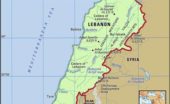Johannah Bernstein post: "eternally proud of my father’s extraordinary aeronautical engineering. legacy. here is a photo of the Canadair Water…
Wednesday Night #1800
Written by Diana Thebaud Nicholson // August 31, 2016 // Wednesday Nights // Comments Off on Wednesday Night #1800
Yes, it is the milestone #1800 and we are sure that Gerald will have an appropriate list of historical facts with which to astound and confound us. Hints: What year was the Dutch East Indies Company dissolved? Who was Luigi Chiaramonti? When did Napoleon become First Consul of France?
Which events of 2016 will make it into a similar list? Whether or not they are worthy of inclusion in the grand scheme of things, there is a line-up for this week, as always.
Justin Trudeau’s first official trip to China has garnered much good advice from several distinguished members of the punditry. One of the most cogent is In search of a winning China strategy by John Bruk, Founding Chairman, Asia-Pacific Foundation of Canada, who lists three issues that should be top of mind during Trudeau’s China visit. The PM delivered his first speech in China to the China Entrepreneur Club. We can only wonder how the Chinese authorities feel about his offer to “help Beijing reshape its role on the world stage.”
CBC also reports that he said Canada is looking “very favourably” at the possibility of joining the Asian Infrastructure Investment Bank. On Wednesday in Beijing, Finance Minister Bill Morneau will meet with the investment bank’s president Jin Liqun., David Mulroney is not keen. CBC quotes the former Ambassador to China: “I actually think we made the right decision in not joining, China is, in my view, far from ready for hosting a major multilateral financial institution. As they were announcing the launch of the bank they were shutting down the website for Reuters, which is one of the premier financial media outlets in the world.”
Half-way around the world, there is good news from Colombia where, after 52 years of war, the government has at last signed a peace agreement with the FARC. This development inspired a great column from Gwynne Dyer, Why Are Wars So Hard To End? He notes that peace came only after 220,000 people had been killed and 7 million displaced by the fighting – and it took four years just to negotiate the final peace deal. Yet the original causes of the Columbian civil war have been largely irrelevant for decades. He then turns to the Syria war “Now consider Syria, where the fighting has been far more intense and the damage far greater. In Syria there are profound religious and ethnic cleavages, and it’s not just two sides fighting but five: the government, two mutually hostile organisations of Islamist jihadis (so-called Islamic State and the Nusra Front, now calling itself the “Army of Victory”), the Syrian Kurds, and the remaining Arab insurgents of the “Free Syrian Army”. Each of the five sides has fought every one of the others at some point in the past five years. Not one of them has a reasonable prospect of establishing control over the whole country, but none of them has been driven out of the game by a decisive military defeat either.” And he concludes “There are those who see the increasing engagement of the Americans and the Russians in the Syrian war as a hopeful development, since if they can agree (and they sometimes do) then maybe they could impose some kind of peace on the country. It wouldn’t be pretty, but it would be better than endless war. Perhaps that is true, but it is more likely to be wishful thinking. If a relatively simple, small-scale civil war like Colombia’s took so long to end, why would we expect Syria’s war to end any time soon?”
Writing in the New York Times, Syria’s Paradox: Why the War Only Ever Seems to Get Worse, Max Fisher echoes many of Mr. Dyer’s points “Academic research on civil wars, taken together, reveals why. The average such conflict now lasts about a decade, twice as long as Syria’s so far. But there are a handful of factors that can make them longer, more violent and harder to stop. Virtually all are present in Syria.” One new development that has not been widely reported – China steps into the Syrian saga. Will this new presence be a positive influence? And allied with whom? Stay tuned.
Meanwhile, another under-reported news item is Syria’s White Helmets nominated for Nobel Peace Prize More than 130 organisations from across the world have backed the Syrian Civil Defence, also known as the White Helmets, whose members brave bombings and sniper fire to provide medical treatment for the wounded in rebel-controlled areas, to win the prestigious international award for peace efforts.
World media are reporting that Abu Mohamed al-Adnani, described as ISIL’s second most senior leader, and one of the group’s longest-serving figures, has been killed. Senior ISIL leader Adnani ‘killed in Syria’s Aleppo’
Highly recommended is the Al Jazeera 3-part series “The Caliph” which traces the history of the caliphates that originated 1,400 years ago.
As the antics of the US campaigns continue –and they will only get worse!- it is reported that Chuck Grassley Says He Could Be Persuaded To Hold Lame Duck Hearing For Merrick Garland
He said he could be convinced if a majority of senators supported it. Apparently afraid that Hillary might nominate a more liberal judge than President Obama’s nominee.
Much of the media focus has been on Hillary’s relationship with the Clinton Foundation’s donors while she was Secretary of State. PBS Newshour presented a pretty even-handed diagnosis A glimpse inside operations at the Clinton Foundation Writing in TIME, Elise Jordan accurately sums up our reactions to the reports:
“Even though in theory I know the Clinton Foundation does good work, it’s impossible not to question appearances. Contrast the image of former President Jimmy Carter wielding a hammer for Habitat for Humanity in the rural South with Bill Clinton jet-setting about Africa on a do-gooder field trip for rich people. It comes down to Clinton’s judgment, and the culture she and the former President create. Even if you give Clinton the benefit of the doubt that her staff acted on her behalf trading access in a way that’s technically above board, she created the culture that encouraged the behavior. As Secretary of State, she did not clip her husband’s wings, a scary precedent that promises Bill Clinton would be a distraction for her entire presidency. The unseemly overlap of the Clinton Foundation with her official role as our nation’s lead diplomat shows she cannot keep her worlds separate and disconnected.” Hillary Clinton’s Reaction to Her Foundation Scandal Is Disastrous
Our dear friend Stephen Blank writes in Open Canada on what to expect in the final months of the campaign, and after in A Clinton win would still spell turmoil — If the results come close, the idea that the election was rigged — even if false — could blow up into a serious storm.
It’s a very clear-eyed and depressing read.
Meanwhile, never underestimate The Donald’s ability to astonish. He is off to Mexico on Wednesday at the invitation of President Enrique Peña Nieto.
As The Atlantic points out, the timing of the visit is notable. Peña Nieto is facing his own challenges in Mexico, and in meeting with Trump, he has the opportunity to flex his muscles against the Republican candidate, who has repeatedly insulted Mexicans. But Trump, too, stands to benefit. By going in advance of his Wednesday speech on immigration in Arizona, he could tout his ability to negotiate and also showcase that he’s prepared to be the commander-in-chief. Trump has been altering his stance on immigration in recent days, indicating that he’ll soften his position, subsequently creating confusion about where he stands on the issue.
Europe after Brexit: A proposal for a continental partnership
(Bruegel )This paper leaves aside the issue of EU reform and focuses on the desirable EU-UK relationship after Brexit. The authors argue that none of the existing models of partnership with the EU would be suitable for the UK. They propose a new form of collaboration, a continental partnership, which is considerably less deep than EU membership but rather closer than a simple free-trade agreement.
(Note from a European friend) One of the most appreciated Brussels think-tanks has just published a paper on a potential post-Brexit arrangement for EU-UK relations, link below. Besides the content, what makes it interesting are the authors who include the chair of the Bundestag Foreign Affairs Committee and an advisor to president Hollande.
Of course the idea of an inner and outer circle is a long-cherished French vision for the future of the EU but this paper is a more concrete attempt to define what the outer circle could be in the present circumstances.
It seems appropriate at this stage to refer to the excellent New York Times piece Why Did We Stop Teaching Political History?
“The ramifications extend well beyond higher education. The drying up of scholarly expertise affects universities’ ability to educate teachers — as well as aspiring lawyers, politicians, journalists and business leaders — who will enter their professions having learned too little about the nation’s political history. Not least, in this age of extreme partisanship, they’ll be insufficiently aware of the importance that compromise has played in America’s past, of the vital role of mutual give-and-take in the democratic process.”
In a very different vein, we also like (and expect some major reactions) University of Chicago Strikes Back Against Campus Political Correctness “Our commitment to academic freedom means that we do not support so-called trigger warnings, we do not cancel invited speakers because their topics might prove controversial, and we do not condone the creation of intellectual ‘safe spaces’ where individuals can retreat from ideas and perspectives at odds with their own.”
This week we watched a re-run of the 60 Minutes “Anonymous, Inc.”. An investigator for Global Witness posed as the representative of a government official from a poor West African country who wants to move millions of dollars in suspicious funds into the U.S., and he needs lawyers’ help. Of the 16 lawyers that Global Witness secretly recorded in preliminary meetings, only ONE attorney flatly declined to participate. And one who appeared pretty keen to pursue the deal was president of the American Bar Association. Chilling!
Following last week’s discussion of the EpiPen price hike, there have been several developments (see https://dianaswednesday.com/2016/08/health-healthcare-2/) , but we also want to call to your attention the excellent Vanity Fair article The Valeant Meltdown and Wall Street’s Major Drug Problem
Not in the same category, but the issues raised by Apple Ireland Ruling Could Be the End of Easy European Tax Deals will no doubt be a hot topic for the next little while, even though the case will likely drag on for years. We certainly understand that EU Competition Commissioner Margrethe Vestager might question how anyone might think an arrangement that allowed Apple to pay a tax rate of 0.005 percent, as Apple’s main Irish unit did in 2014, was fair. Not illegal, but not fair.
We promise no tax bills, nor corrupt lawyers, but a modest celebration of 1800 Wednesday Nights.



